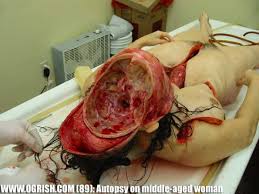
记忆方法
将“autopsy”分解为“auto-”(意为自己)和“opsy”(与看、观察有关)。想象一个“自己”在观察(opsy)一具尸体,从而形成这个词的含义——尸检。
以上内容由AI生成, 仅供参考和借鉴
中文词源
autopsy 验尸
前缀auto-, 自己的,亲自的。词根op, 看,见optical. 指亲自查看。
英语词源
- autopsy (n.)
- 1650s, "an eye-witnessing," from Modern Latin autopsia, from Greek autopsia "a seeing with one's own eyes," from autos- "self" (see auto-) + opsis "a sight" (see eye (n.)). Sense of "dissection of a body to determine cause of death" is first recorded 1670s, probably from the same sense in French autopsie (1570s).
权威例句
- 1. An autopsy was being done to establish the cause of death.
- 正在进行尸检以确定死亡原因。
- 2. The autopsy report gave the cause of death as poisoning.
- 验尸报告上显示死因为中毒。
- 3. to perform an autopsy
- 进行尸体剖验
- 4. They're carrying out an autopsy on the victim.
- 他们正在给受害者验尸.
- 5. An autopsy eventually ascribed the baby's death to sudden infant death syndrome.
- 尸检最终认定孩子死于婴儿猝死综合征。